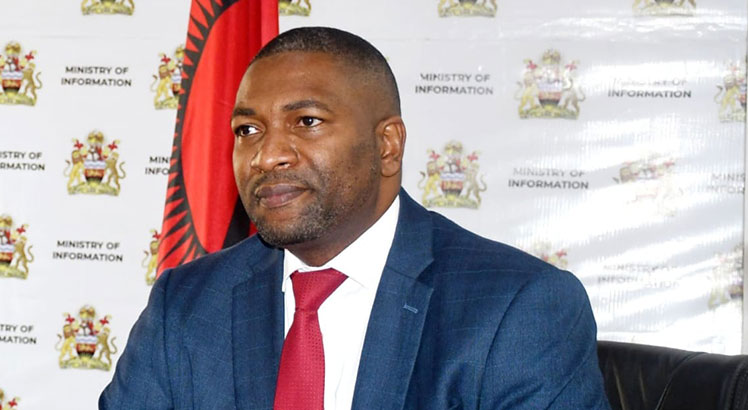Is there more cash in ATM?
Agriculture, tourism and mining (ATM) might have been hyped, but Minister of Finance and Economic Affairs Simplex Chithyola Banda’s K5.98 trillion fiscal plan seems poised to boost productivity and commercialisation. There are now fears over allocations to the tourism and mining sector.
In his budget presentation in Parliament on Friday, Chithyola-Banda sought to align his maiden fiscal plan to President Lazarus Chakwera’s fabled ATM strategy which prioritises agriculture, tourism and mining.
Agriculture sector
The minister publicly proclaimed the importance of the agricultural sector, which employs more than 80 percent of the local population and accounts for nine out of the country’s top 10 forex earners, and seemingly backed his conviction by raising its sectoral allocation from K455.1 billion in the 2023/24 financial year to K497.75 billion in the current fiscal plan.
However, the allocation to the agricultural sector as a percentage of the total budget may have dropped from 11.8 percent in the previous financial year to 8.6 percent this year, a drop of 3.2 percentage points.
The saving grace in the budget is that the government has concentrated financing to projects designed to boost agriculture commercialisation and productivity, a development that would promote the sector’s resilience to climate and weather-related shocks.

Based on our calculations of the projects that the minister outlined in his budget statement, the government will allocate K209.04 billion or about 42 percent of the agriculture budget to six projects geared towards revamping irrigation systems and promoting employment in the agriculture sector.
Of the projects to boost agricultural commercialisation and productivity, the World Bank funded Agriculture Commercialisation Project has an allocation of K92.56 billion.
Chithyola-Banda said: “The Shire-Valley Transformation Project will get a provision of K60.6 billion, Programme for Rural Irrigation Development [Pride] an allocation of K26.06 billion, Transforming Rural Agriculture and Entrepreneurship [Trade] with an allocation of K25.32 billion.”
Meanwhile, allocation to the Affordable Inputs Programme (AIP) has dropped from K177.7 billion or 39 percent of the agricultural budget to K161 billion or 32.3 percent. This is a drop of 5.7 percentage points.
Chithyola Banda’s maiden plan also allocates K4 billion to Agricultural Infrastructure and Youth in Agribusiness Project and K500 million goes towards the promotion of mechanised farm operation through hiring farms.
In an earlier interview, Minister of Agriculture Sam Kawale said the country would need to continue investing in irrigation systems to help farmers mitigate weather-related shocks.
He said: “We understand that mechanisation and irrigation will be key to initiatives such as winter cropping. To do that we need to promote irrigation. The advantage with irrigation is that it takes care of the problems that we are facing nowadays such as the prolonged dry spells.
“If we adopt the right policy and regulations, we can create an environment where farmers can have multiple harvests in one growing season.”
Mzuni University agricultural economist Christopher Mbukwa said though nominally there is an increase by 47 percent in AIP allocation compared to the actual expenditure in the 2023/24, there is actually no increase because of the prices of inputs.
“We may not have an increase because of the rising inputs prices. So, we are likely to have the same number of beneficiaries even less because input prices are not expected to be the same,” he said.
Mbukwa said we should be allocating more resources towards agricultural commercialisation and investing in irrigation as we are reducing the allocations of AIP.
Tourism and mining
Meanwhile, tourism was allocated K4.8 billion “which will be anchored by the 20-year National Tourism Investment Masterplan and a Domestic Tourism Marketing Strategy to boost the productivity of the sector.
The mining sector got K3.5 billion, but the Ministry of Tourism believes the allocation to that sector is enough to cover the ministry’s core functions—product development, marketing and creating a suitable regulatory environment to increase private sector engagement.
Minister of Tourism Vera Kamtukule said the government will finance projects required to revamp the tourism sector through other government ministries, departments and agencies (MDAs).
Said Kamtukule: “We will require collaboration between various MDAs. For instance, there are funds allocated to rehabilitating roads to tourist destination sites in Mangochi and Machinga through the Ministry of Transport and Public Works.
“Government has also financed the rehabilitation of local airports through the Aviation Authority. agencies.”






I just could not depart your web site prior to suggesting that I really loved the usual info an individual supply in your visitors Is gonna be back regularly to check up on new posts